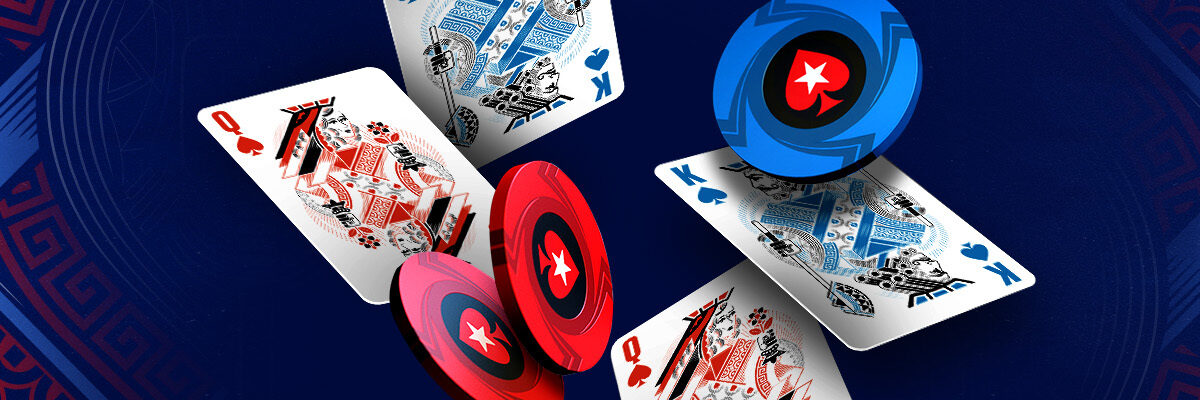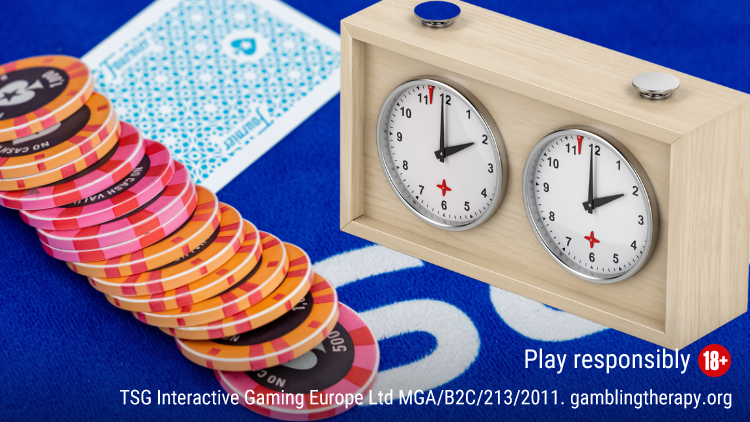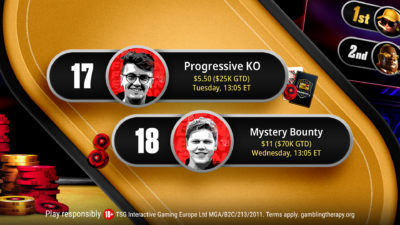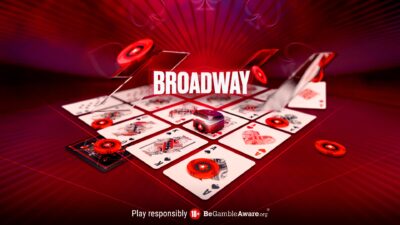Would the introduction of a chess clock in poker tournaments solve the game’s stalling issues? We investigate and imagine at EPT Paris
Few topics in poker are discussed and debated as frequently as the time it takes players to make decisions in live tournaments.
In one way or another, we’ve all experienced the extreme. You’ve probably either faced an incredibly slow player at your local cardroom and were put in the awkward position of having to call the clock*, or you’ve watched an epic tank on a live stream broadcast, so long that you went to the kitchen, boiled the kettle, made a coffee, perhaps some lunch, and returned to find the same player still contemplating their decision.
At PokerStars Live events, measures have been introduced to counter such issues. Shot clocks and time extension cards are now common practice and go a long way to reducing unnecessary slow play, particularly near bubbles when it’s most common for players to stall.
But could the introduction of a chess clock be the solution? Some poker pros, like five-time World Series of Poker champion Jeremy Ausmus, believe so.
The @PokerStarsLIVE system for running tournaments is very impressive. All entrants table and seat number are known at all times and it updates instantly when a table is broken. Seems like adding a chess clock would be quite doable and would be an amazing addition to live poker… https://t.co/DDPcHKx43E
— Jeremy Ausmus (@jeremyausmus) February 22, 2023
Chess-style clocks are already used in online poker. Players get a set amount of time to act before their “time bank” is triggered. If you don’t act in the allocated time and you’ve run out of time bank, your hand is immediately dead.
But could they also work in live poker? Let’s dive into it.
*To call the clock means to challenge a player for taking too long to act. If tournament staff agree that the player has taken too long, they have one minute to act or their hand is dead.
COULD A CHESS CLOCK WORK IN POKER?
On paper, the idea of a chess clock in poker is simple: each player is given a set amount of time to make their decisions throughout a tournament, and the longer they take to act, the less time they’ll have in the future.
With a chess clock, tournaments would immediately speed up due to the removal of the “free” 30 seconds players get to make a decision before a time extension card must be used. In fact, time extension cards would be removed altogether.
Your clock simply begins to run a few seconds after your turn to act begins, and once your time runs out, it’s gone. This would deter slow players from tanking unnecessarily as they will use up valuable time they may genuinely require later.
HARD TO IMPLEMENT
In reality, though, a chess clock is a tricky thing to implement in live poker.
“It’s an interesting idea, but I’m just not sure,” says EPT Tournament Director Toby Stone. “My gut reaction is that it’s not a problem that needs fixing, and that it would be a nightmare to manage.”
As it stands, there are several glaring issues with chess clocks in poker:
How much time should be allocated?
Stone estimates that players in an EPT Main Event will play 25 hands per hour on average. At the moment, each player gets six time-extension cards at the beginning of the day, then gets 30 seconds to make each decision before the use of a time-extension card is required.
That means the maximum a player can take to make a single decision is three minutes and 30 seconds.
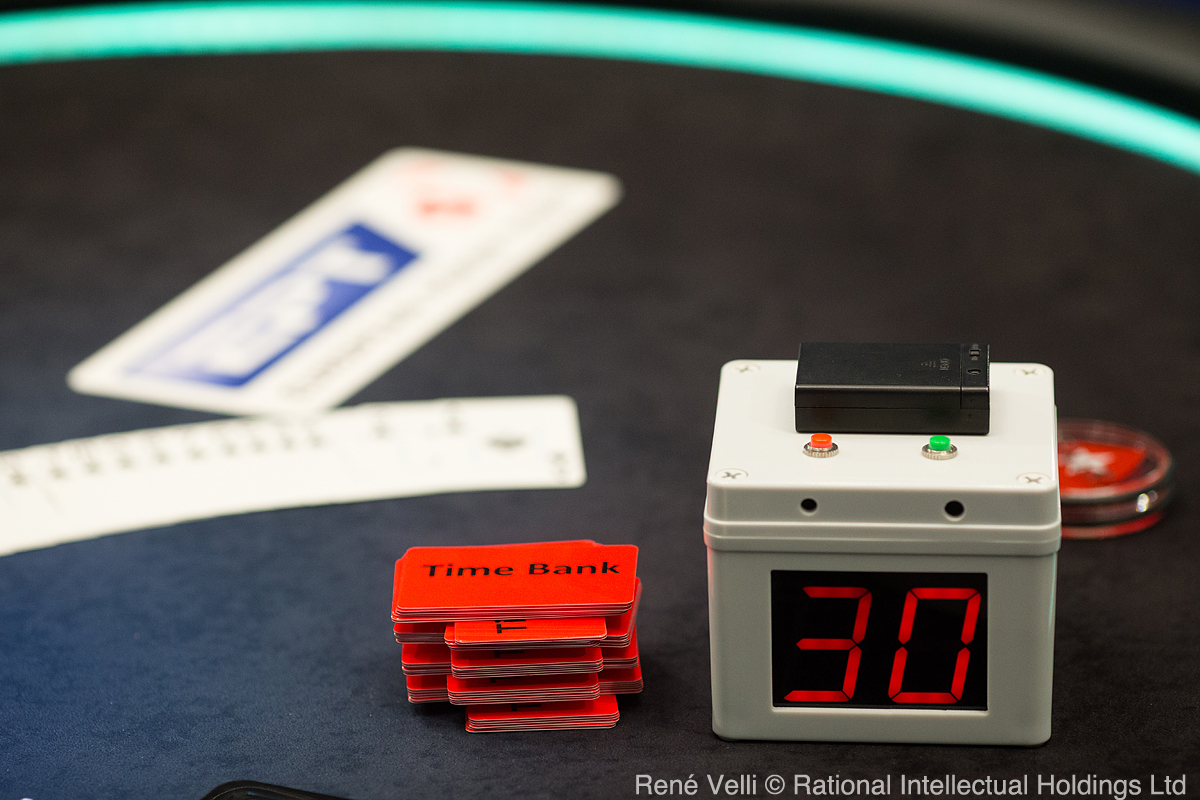

Keeping time on the EPT
So, what’s a reasonable amount of time to give players for their overall tournament time bank? Five minutes? Ten? Twenty?
Moreover, what happens when a player’s time bank runs out? Should they just get 10 seconds for every decision for the rest of the tournament? Or should a harsher penalty be enforced?
Who controls the clock?
There are a couple of ways a chess clock could be operated in a live poker tournament.
One is that the dealer operates it, just as they currently do with the now-traditional shot clocks.
“The dealers wait five seconds before hitting the clock, and most actions happen in that time,” says experienced tournament organiser Nick O’Hara. So, for the vast majority of decisions, the shot clock isn’t required.
This “grace period” could also be implemented with a chess clock. Every player gets a “free” five seconds to fold, call or announce a raise. The dealer runs the player’s clock when no action is taken.
The other way to implement a chess clock would be to have the players control it themselves, just as chess players do. As soon as they have made their move, they hit a button on the clock which automatically starts the clock of their opponent. In poker, hitting the button would start the clock of the player to the left.
“If it was introduced, I see it being something the player has to hit and not the staff,” says O’Hara.
Is it asking too much of dealers?
The dealers on the EPT are the very best in the world. They’ve not only mastered their craft but adapted to the changing conditions of live poker tournaments, most notably the use of shot clocks and tablets for tracking players.
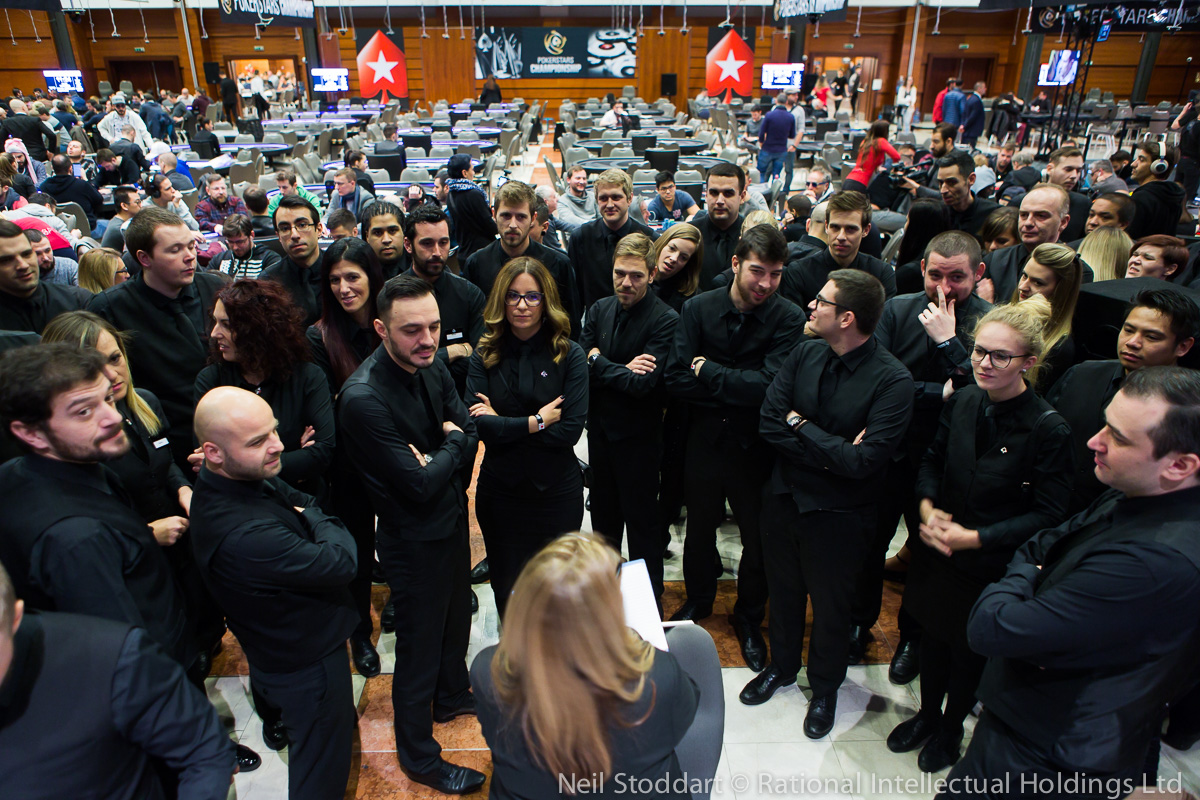

Dealers prepare for their day at EPT Prague
Would adding chess clocks make their job even more difficult?
“Really, we just want dealers to deal,” confirms Stone.
SOFTWARE DEVELOPMENT REQUIRED
Chess clocks could only be introduced to live poker tournaments if the technology is there. “It’s a software development thing, at the end of the day,” says O’Hara.
In this writer’s opinion, the idea would be to create a clock that controls itself, activated by players when they press their clock buttons after they’ve acted. If there’s a way to link personal clocks to the PokerStars Live app, which tracks all players and their seating assignment throughout a tournament, then there’s a chance it wouldn’t require any extra effort from the dealers.
But what happens to a player’s clock when they move tables? Well, as things stand, personal clocks would automatically move to a new table, just like names on the app do. To prevent the activation of a personal clock before the player has arrived at a new table, they will “scan in” upon arrival.
“If we reached the point where the app is there, I definitely see a benefit,” says O’Hara. “With a bit of work, our IT system could accommodate it.”
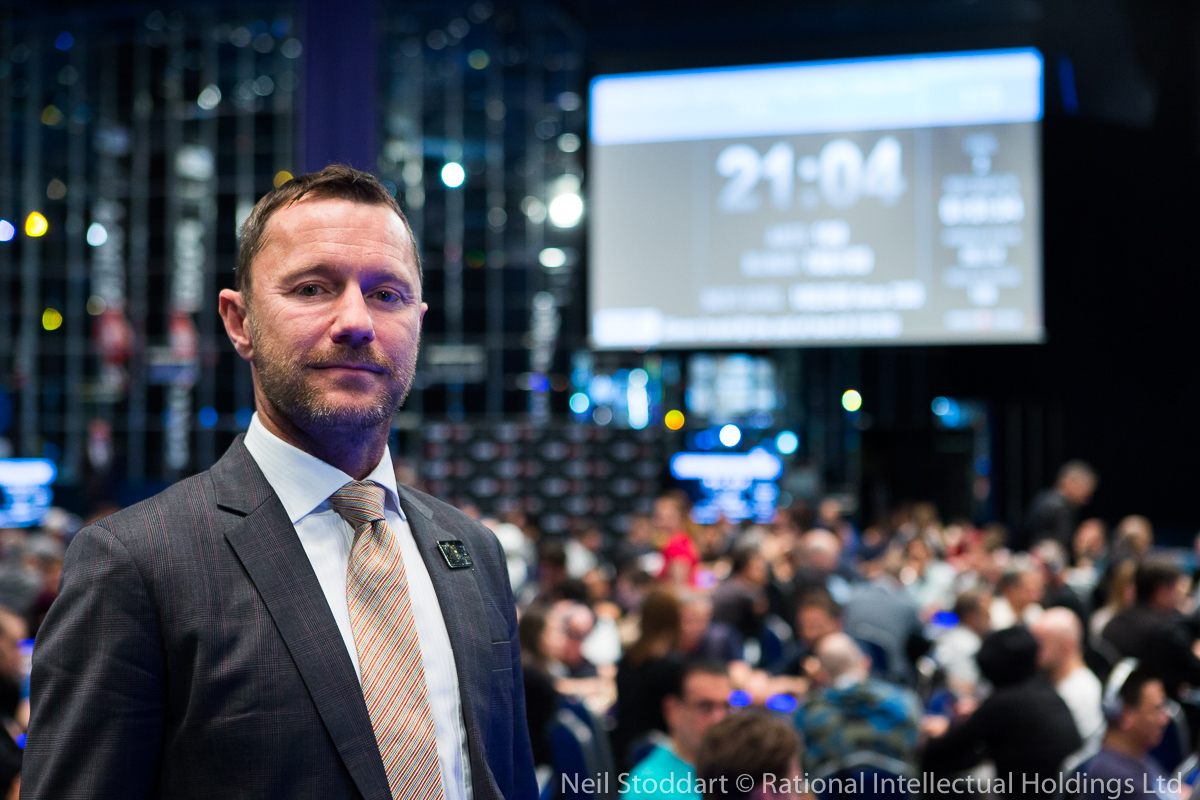

PokerStars’ EPT Tournament Director Toby Stone
Despite the PokerStars Live App’s popularity among players, fans and media, the overall system still isn’t where Stone and his team would like it to be. “We have a bunch of priority items that we need to push through,” he says. “So a chess clock wouldn’t be on our priority list now.”
Having said that, Stone believes it could be something to try in the future if the demand is there. O’Hara agrees: “Ultimately, I think the concept is a good idea if it was implementable without adding work to the dealers.”


